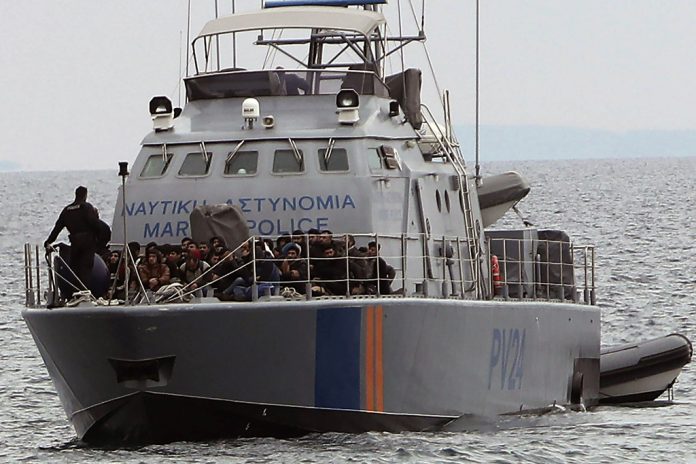BEIRUT (AP) — European aid sent to Lebanon in an attempt to regulate migration by sea is funding practices that violate human rights, according to a global watchdog report published Wednesday.
As part of a policy to contain migration, authorities in Cyprus have physically pushed Syrian refugees back to Lebanon, and Lebanese security agencies have deported them, the Human Rights Watch report said.
The report, based on interviews with 16 Syrians who tried to leave Lebanon via smuggler boats, found that 15 of them “suffered human rights violations at the hands of Lebanese and/or Cypriot authorities.”
Rights groups have frequently criticized the tactics of authorities in both Lebanon and Cyprus in dealing with would-be migrants and asylum seekers. Officials from the two countries deny violating any laws but say they are overwhelmed by the migration they are facing.
Lebanon, which has been in the throes of a severe financial crisis since 2019, hosts around 775,000 registered Syrian refugees and hundreds of thousands more unregistered, the world’s highest refugee population per capita.
Lebanese political officials have pushed for western countries to resettle the refugees or assist in returning them to Syria — voluntarily or not. At the same time, Lebanon has an agreement with Cyprus to halt the smuggling of migrants and has received substantial funding from the European Union and European countries for border control.
In some cases, Syrian refugees who were caught by the Lebanese army attempting to leave to Cyprus by sea have been driven to the Lebanon-Syria border and dumped on the Syrian side, Human Rights Watch said. Allegedly, some of them were then detained by the Syrian army, while others were extorted by smugglers for passage back to Lebanon.
Cyprus, meanwhile, suspended processing of Syrian asylum applications in April. Human Rights Watch accused Cypriot authorities of forcibly turning back boats carrying asylum seekers coming from Lebanon.
In some cases, Cypriot authorities forcibly prevented asylum seekers from landing, and in other cases they made it to shore but “were not given the opportunity to claim asylum” and instead were detained and then returned to Lebanon, where some were then deported to Syria, the report said.
“Both Lebanese and Cypriot authorities used excessive force at the time of arrest and during detention,” Human Rights Watch said.
The European Union and European countries gave Lebanon some 16.7 million euros ($18.5 million) from 2020 to 2023 for border management “mainly in the form of capacity-building projects explicitly aimed at enhancing Lebanon’s ability to prevent irregular migration,” the report said. In August, the European Union allocated another 32 million euros ($35.3 million) to “continue implementing border management enhancement projects in Lebanon through 2025,” it said.
Cyprus’ Deputy Ministry of Migration and International Protection in a statement denied carrying out so-called pushbacks. It noted that Cyprus is a “small frontline country” that has “received massive migrant flows over the last few years.”
“The state’s capacity to host additional migrants is overstretched,” the statement said. “Therefore, we aim to strike a balance between our legal obligations and the realities on the ground.”
Lebanon’s General Security agency told Human Rights Watch that between Jan. 1, 2022, and Aug. 1, 2024, it recorded 1,388 people, including 821 Syrians, on 15 departing boats, who were caught attempting to leave Lebanon. General Security maintained that every deportation of which it “had knowledge and on which it coordinated, was subject to international human rights law standards.”
Acting Director-General Beate Gminder of the European Commission’s Directorate-General for Migration and Home Affairs said in a response to the report’s findings that the commission “takes allegations of wrongdoings very seriously,” but that it is the responsibility of national authorities to “investigate any allegations of violations of fundamental rights” and to prosecute wrongdoing.
___
Associated Press writer Menelaos Hadjicostis in Nicosia, Cyprus, contributed to this report.
Source: post





